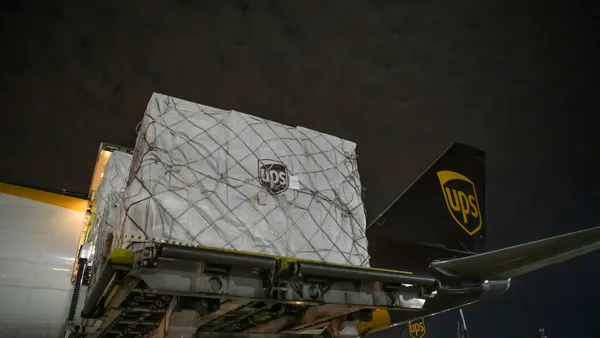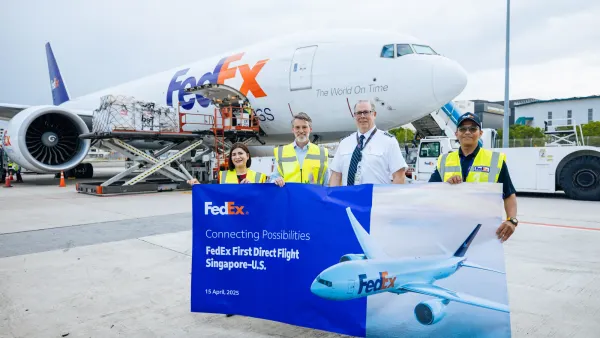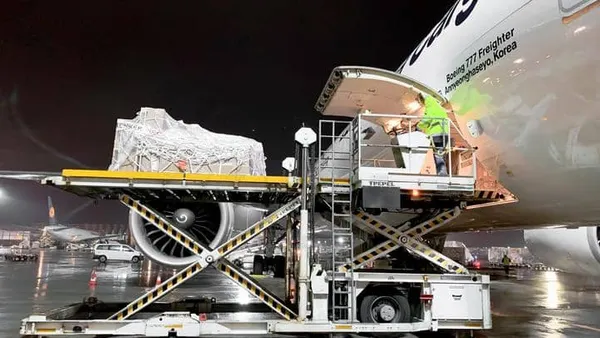Dive Brief:
- DSV added capacity to its airfreight charter network last week to keep up with high demand, the carrier said in a press release.
- It has added two flights per week from Belgium to New York and a weekly flight connecting Luxembourg and Huntsville, Alabama, according to the announcement.
- "Production is picking up across the transatlantic, and with belly capacity down by 50% YoY, we are again expanding the DSV Air Charter Network to meet demand," Mads Ravn, head of global air freight procurement at DSV, said in a statement.
Dive Insight:
The airfreight market relies, in large part, on passenger flights returning to the market with space for belly cargo to add capacity. But the most recent outlook from the International Air Transport Association on passenger travel isn't very optimistic, showing plateauing levels of global air travel in August and September.
The freighter market has anticipated the plateau and lack of belly capacity for almost an entire quarter.
"The expectations of passenger belly capacity to come back into the market have slowed dramatically," Atlas Air CEO John Dietrich said on the company's earnings call in August.
UPS has also added capacity for peak season — as it does every year. It has been in the process of expanding its air network with plans to add 55 jets between 2017 and 2022, according to Jim Mayer, the public relations manager for UPS Airlines.
"We just took delivery this week of another 747-8," Mayer said.
The lack of capacity has led to higher rates into the U.S. from Asia and Europe compared to the same time last year, according to figures from the TAC Index. This is despite the fact that the overall volume is still down YoY, according to the latest IATA figures.
This drop in volume is showing up for some companies in the airfreight market. Kuehne + Nagel reported a nearly 13% drop in Q3 air logistics volume on its earnings call last week, but the company said the sector was showing improvements.
"Our market share is stable to maybe up on some trade lanes," Kuehne + Nagel CEO Detlef Trefzger said on the call. "And we saw a very strong volume trend being evident in European export business. This was driven especially by automotive and perishables."














